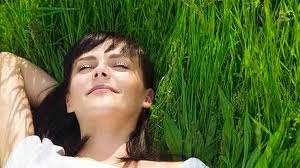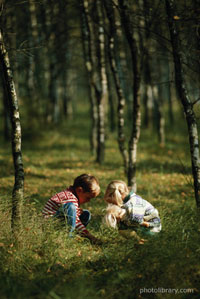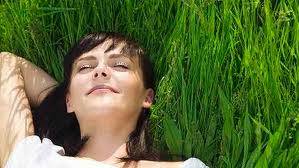The Amazing Ways Nature Can Heal You and Make You Feel at Your Best
Source: ascendingstarseed.wordpress.com

There are some great reasons to get outside. Even looking out the window helps.
From your first steps into the forest, your entire body feels changed. You feel the gentle breeze on your skin and the trail under your feet. You breathe in and notice the clean, crisp air with the familiar smell of the forest that is sometimes punctuated with the odors of specific plants you pass, like a fragrant flower or a pungent sage. After a long hike, you feel recharged, and not just because of the exercise.
If that describes you, you’re not alone. A growing body of science is showing that nature is good for you. That includes spending time in nature, but it even includes looking at natural scenes out a window.
Should this really be news? After all, human being evolved in nature for millions of years, not even changing their surroundings with agriculture until 10,000 years ago. In many parts of the world, homes are still made from locally obtained materials like wood, palm or grass thatch, mud, and even cow dung. Travel within villages occurs on trails, not roads, and peasant farmers forage foods, herbs and building materials from wild vegetation near their homes. At night, the stars shine overhead without any city lights to compete with them.
But as obvious as it may seem, it’s still helpful to study how nature impacts our lives and our health. Modern science allows us to hone in on exactly how and why nature is so good for us—something intuition alone cannot provide.
Some of what we know about the impact of nature on health is incomplete. One recent study tested over 1,200 elderly adults. Those who had not engaged in outdoor recreation in the past year were the most prone to major depression. Those who spent time outside four or more times a week suffered the least depression. This study found a correlation, but it did not necessarily find causation. Were people depressed because they did not go outside, or did they not go outside because they were depressed?
The basics behind the “nature is healthy” concept goes back decades. In 1984, a classic study found that hospital patients recovered from surgery quicker if their room offered a view of nature compared to those who looked out on a brick wall. Another study, published in 2003, found that health increased with the amount of greenspace in one’s living environment.
Nowadays, scientists are using this basic understanding to fine-tune the hows and whys of nature’s impact on health.
One study concluded that the psychological benefits of nature increase with biodiversity, defined by the richness of different types of habitats, plant species, and birds. Another line of research has examined whether benefits of exercise on self-esteem and mood can be increased if exercise is done in a natural environment, known as “green exercise.”
In one instance, mental health patients’ self esteem improved significantly more if they participated in green exercise than if they simply participated in a social club. (One study of adults even found that exercising on a treadmill indoors while viewing pleasant outdoor scenes achieves such an effect, although another study failed to replicate the effect with adolescents.)
So why is Mother Earth just so darn healthy?
One reason, called Attention Restoration Theory, was outlined by Stephen Kaplan, in the 1980s and ’90s but it actually dates back to a theory proposed in 1892.
 Over a century ago, psychologist William James then proposed the idea of “voluntary attention.” Kaplan describes it as “the kind of attention that went ‘against the grain’… It was to be employed when something did not of itself attract attention, but when it was important to attend nonetheless.” Studying for finals or reading a software instruction manual fall into this category.
Over a century ago, psychologist William James then proposed the idea of “voluntary attention.” Kaplan describes it as “the kind of attention that went ‘against the grain’… It was to be employed when something did not of itself attract attention, but when it was important to attend nonetheless.” Studying for finals or reading a software instruction manual fall into this category.Kaplan, a psychologist at University of Michigan, takes this theory further by combining it with another 19th-century theory, namely that one can become fatigued from expending too much of this voluntary attention, also known as directed attention. A student who announces, “My brain is fried” after a weekend of studying is expressing this kind of fatigue.
One way to deal with directed attention fatigue is sleep, but sleep alone is not enough. Aside from sleep, one requires “restorative experiences”—and that is what nature provides. Kaplan outlines many components to this, such as the sensation of “getting away,” an effortless fascination with one’s surroundings, and what he calls a sense of “extent,” a sense of being connected to a larger world.
Once outside, you are free to effortlessly follow a butterfly with your eyes, listen to songbirds, or observe the motion of the leaves in the breeze. But this attention requires little energy, and it leaves your mind free to wander onto other things even as you watch a brilliant sunset or a hawk soaring overhead.
[...]
Read the full article at: ascendingstarseed.wordpress






















